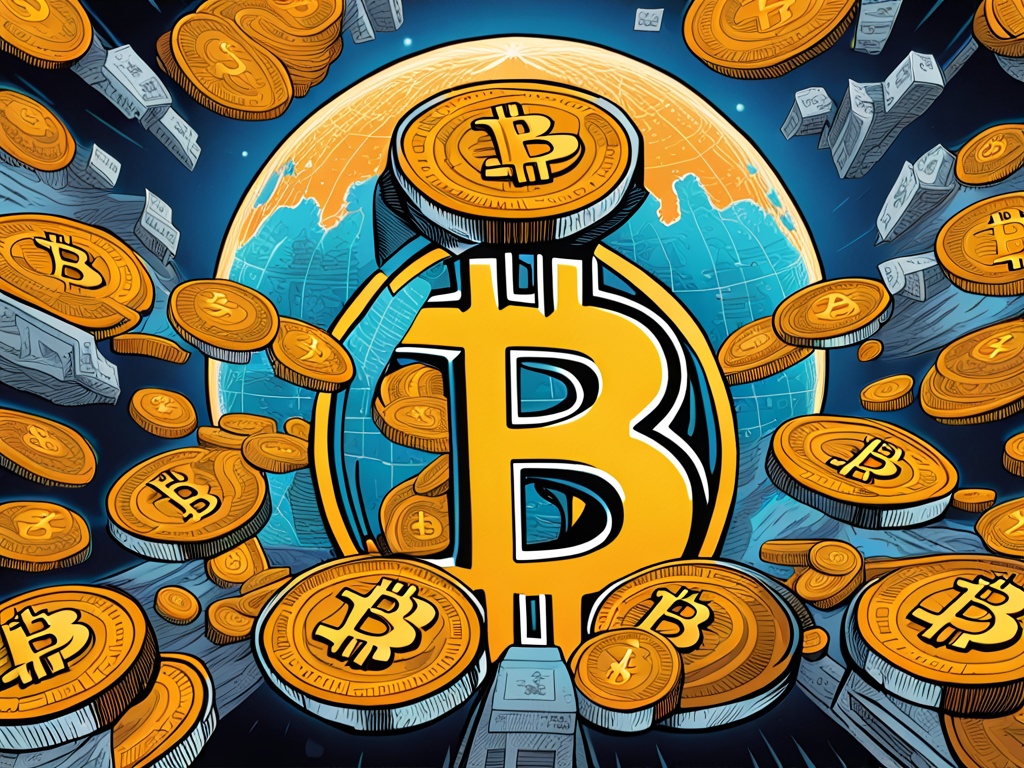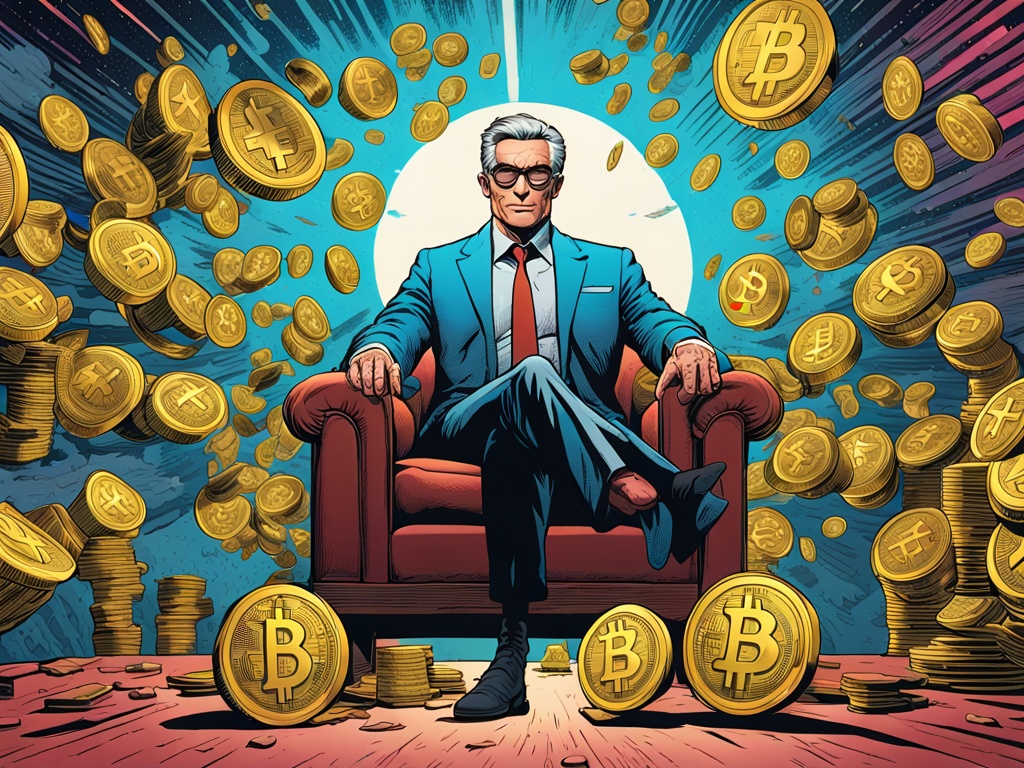Riding the Bitcoin Wave: New Hampshire and North Dakota’s Bold Move
Have you ever felt that buzz of excitement when something significant is about to happen? It’s like that moment in a movie when everything aligns just right, and you know you’re witnessing a pivotal scene. That’s how many folks in the crypto world are feeling about the latest developments in New Hampshire and North Dakota. These states are considering legislation to include Bitcoin in their state treasuries, and that could signal a big shift not just for these states but for the entire crypto market.
Imagine sitting in a cozy coffee shop, discussing the possibilities with a fellow investor over a steaming cup of joe. The implications of such movements can spark so many thoughts and discussions, especially when considering the broader economic landscape.
Key Takeaways
- New Hampshire and North Dakota are exploring legislation to integrate Bitcoin into state treasuries.
- This move reflects a desire to diversify state investments amidst economic uncertainty.
- The bills support digital assets with substantial market caps, likely favoring Bitcoin.
- Critics and supporters within the crypto community view these measures differently, prompting debates about regulation and inclusion.
- This trend aligns with broader national interest in Bitcoin, influenced by prior governmental actions and upcoming policy discussions.
A Shift in Economic Strategy
So, what does it mean when states like New Hampshire and North Dakota decide to dabble in Bitcoin? Well, it symbolizes a growing acceptance of digital currencies among public institutions. Just think about it for a moment. Traditionally, we’ve relied on familiar investments, like stocks and bonds. But in the current climate, with inflation gnawing away at purchasing power, these states are considering alternatives.
Lawmakers in North Dakota, for instance, have proposed a resolution to include digital assets, which can include cryptocurrencies, in its investment strategy. Similar legislation is working its way through New Hampshire. By integrating Bitcoin as part of state treasuries, these states hope to safeguard their finances against economic pressures.
A Sneaky Yet Savvy Approach
Now, interestingly enough, neither of these bills explicitly mentions Bitcoin, which has raised eyebrows within the crypto community. Some critics argue that omitting Bitcoin’s name could open the door to less desirable or riskier cryptocurrencies. However, proponents suggest that this strategy allows for easier passage of these bills by avoiding the political landmines that come with discussing Bitcoin directly.
Take Dennis Porter, a vocal advocate for Bitcoin policies; he explains that using tech-neutral language tends to reduce conflicts during discussions. This smart maneuvering reflects an understanding of both the economic landscape and the political climate, making it a savvy play.
The Bigger Picture: National Trends
You might be wondering if this is just a couple of states playing around or if there’s a larger trend at work. Well, it’s quite significant! More states, including Texas and Florida, are exploring similar reserves. The potential inspiration from prior national discussions suggests there’s an appetite at various levels of government for Bitcoin reserves.
Consider this: the U.S. government already holds a substantial stash of Bitcoin, valuing over $18 billion. That makes Uncle Sam the most prominent nation-state Bitcoin holder! With calls for a national Bitcoin reserve gaining traction, it’s clear that public institutions are taking a serious look at how this digital currency could fit into their investment frameworks.
A Personal Reflection on Crypto’s Future
Having invested in crypto myself, I find these developments exciting yet wrought with uncertainty. I remember my first purchase of Bitcoin; it felt almost rebellious, like jumping on a rollercoaster—thrilling, but you can’t help pondering if the ride will end in exhilaration or a stomach-churning drop!
If states are considering Bitcoin, it might mean the cryptocurrency is gaining the legitimacy some investors have long hoped for. It’s a bit like watching your favorite underdog team finally start to gain a following. But then again, it’s essential to keep level-headed. Investments in cryptocurrencies remain volatile, and there’s no guarantee that integrating them into state treasuries will shield against economic upheaval.
Questions That Make You Think
With all this in mind, I can’t help but ask: Are we on the brink of a profound transformation in how governmental entities perceive and utilize cryptocurrency? Will these initial steps lead to broader acceptance or merely spark pushback from traditional finance and regulatory bodies?
The discussion surrounding North Dakota and New Hampshire’s consideration of Bitcoin is more than just a state-level experiment; it might represent the first chapters in a larger narrative regarding cryptocurrency’s role in the financial system. As you ponder these developments, remember that change often comes alongside both opportunity and risk—much like that rollercoaster ride!
If you’re curious about further details, check out these links on New Hampshire Bitcoin Reserve, North Dakota Bitcoin Legislation, and Bitcoin in State Treasuries. Remember, the world of cryptocurrencies is like a thriving conversation—everyone has a voice, and the discourse only gets more dynamic as stories unfold!





 By
By
 By
By
 By
By
 By
By
 By
By
 By
By